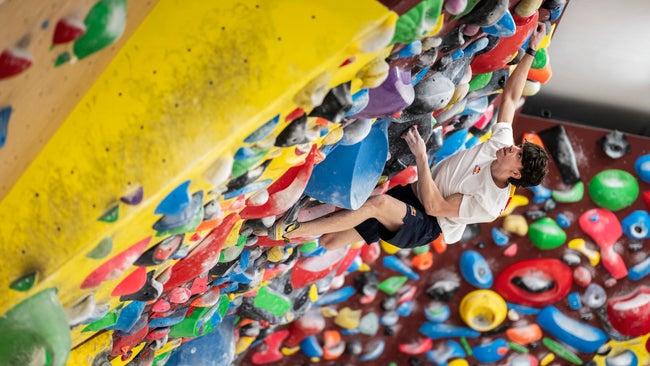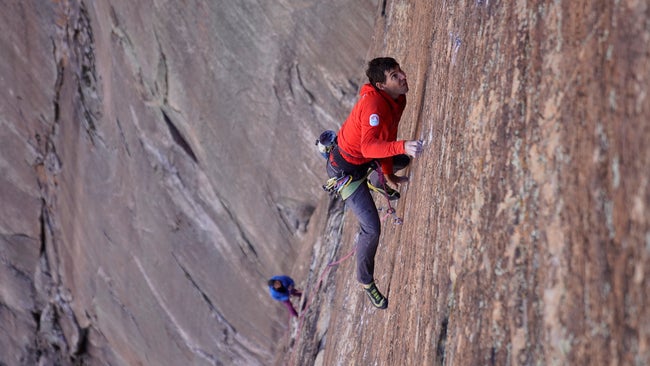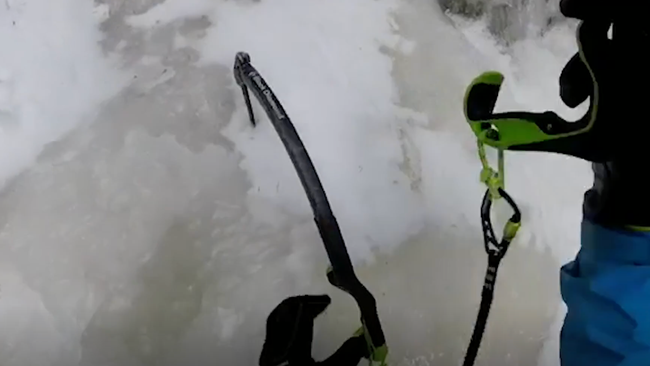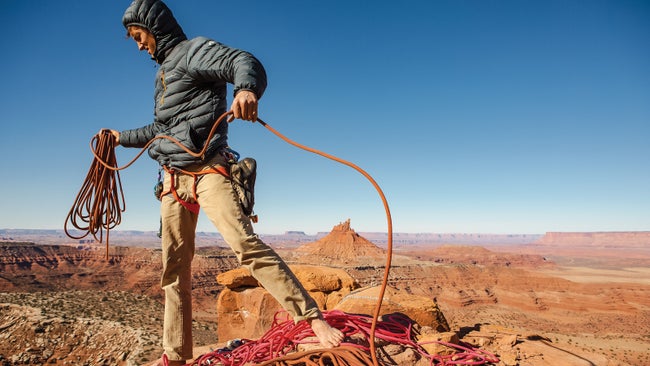An Ill-Advised Attempt of the Canadian Rockies’ Highest Peak
“What’s the biggest, baddest mountain around here?” a youthfully ignorant Jim Donini asked.

Don't miss new content!
Follow the brand to see our content on your activity feed!
“What’s the biggest, baddest mountain around here?” a youthfully ignorant Jim Donini asked.
Rock climbing is hard. If you're tired of toughing it out in the great outdoors, here is how to acclimate to gym life.
Sam Lawson's Wedge Climbing is is one of the most artful climbing channels on YouTube. But he worries that relying his passion for his livelihood “would potentially ruin it for me.” We asked why.
Oh how we love to dispatch the crux. But it’s no reason to lose concentration.
Six testers tried 12 shoes on a range of trails, rock scrambles, and pitches around the world. These came out on top.
You loved the mountains, you taught us how to enjoy them, and you always made us laugh. The world needed more of you.
But let's not forget the woman who really taught Letterman the ropes
While James Lucas was working on the new Bishop guidebook, he put together a list of Bishop’s best highballs at every grade up to V10. Pad these climbs carefully—or better yet, don't fall.
Ten testers tied into eight ropes. After lots of use and abuse, these five came out on top.
"It is important to have books like The Art of Climbing in today’s digital world," Adam Ondra writes. These books create passionate climbers—and passion is what gets us to the top.
Spoiler alert: It’s not aromatherapy candles or a trendy diaper bag
This eight-phase (12-month) training series will present specific workouts based on the principles of periodization. Each six-week segment will build upon the previous one.
Honnold is famous for (among other things) cramming as much climbing as he can into each day. To do so, he's developed some efficiency tricks that the rest of us can imitate.
The void swallowed him alive, his streaking form more easily imagined than described. The air froze in my chest.
There are two miracles in this week's whipper: 1) He survived. 2) He caught the fall on video.
Stop wasting your money on shoes that don't fit or are painful or fail you. Don't be disappointed again. Here's how to buy what' just right, just for you.
When one of the world’s best crack climbers was grounded by chronic fatigue syndrome, his life became an uphill struggle just to feel human again.
They figured they knew enough about climbing to wing it, but took a dangerous risk that could have cost them.
During my senior year of high school, my friends and I were bored. We decided we collectively knew enough about climbing for it to be safe. We went to the local outfitter and bought harnesses, carabiners, and belay devices, but we scoffed at the price of a rope. It was way outside our budget. Instead, we went to Home Depot and bought 100 feet of poly cord that was rated for 200 pounds. We climbed on that rope all day, just easy 5.3 climbing on toprope. I’ve included a couple photos. It wasn’t until I was lowering at the end of the day that I realized what a mistake I’d made. The 100-foot rope had stretched to about 200 feet, shrinking to the size of 8mm cord. I bought a real climbing rope the following week. Wanted to share because we are all new at some point and even with the best intentions mistakes are made. We should collectively work together to improve safety across the sport. I wish someone would have stopped us from climbing on that poly rope.
—Kyle Harris, via email
—
LESSON: Modern climbing ropes include a number of climber-friendly features. They can hold thousands of pounds of force. They have durable sheaths that prevent abrasion and cutting. They have the ideal amount of stretch to catch a fall softly, and then bounce back to their original length and diameter. They’re supple and easy to tie and untie. They’re tested to meet rigorous safety standards. And they work great with modern belay devices. A random hardware store rope is not designed with any of these goals in mind, and can’t be expected to meet them. Always use proper climbing gear designed and rated for climbing.
Want more? Check out more installments in our ever-growing hall of shame:
Lucky He Didn’t Die. Lowered From a Toy Carabiner





